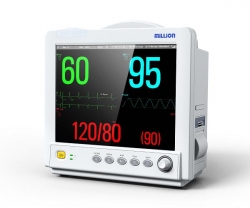Wechat QR code

TEL:400-654-1200

TEL:400-654-1200
On December 8, the State Health Planning Commission held a press conference to introduce the status of universal health informatization in improving the effectiveness of medical services and to plan the second three-year action plan to improve medical services.
Three-year plan, with remarkable results
Jiao Yahui said that at present, all tertiary hospitals have carried out booking services, 4174 hospitals for patients with information query and push services; more than half of tertiary hospitals conducted day surgery, accounting for the proportion of elective surgery increased to 12.8%, of which Day clinics were set up in 639 medical institutions, an increase of 243 over the same period of the previous year. 1,340 medical institutions conducted daytime ward services and provided services such as chemotherapy, neonatal blue light irradiation and rehabilitation physiotherapy. 86% of hospitals realized the same-level examination and test results .
After three years of improving the medical service action plan, the medical service model is constantly innovated. Jiao Yahui emphasized that medical institutions and research institutes and enterprises carry out extensive cooperation in optimizing medical services and improving medical quality.
The hospital continued to improve medical services and primary health care resources enjoy more and more high-quality medical resources. At present, telemedicine has covered 13,000 medical institutions and all state-level poverty-stricken counties. In 2017, the total number of remote consultation, remote pathology, imaging and electrocardiographic diagnosis services exceeded 60 million
Patient approval of the Action Plan to Improve Medical Services. Real-time online assessment data show that the overall satisfaction rates of outpatient and inpatient tertiary hospitals in China are maintained at 85% and 95% respectively.
The next three years, ten initiatives

Jiao Yahui said that the State Health Planning Commission is studying the formulation of the second three-year action plan to improve medical services from 2018 to 2020, systematically summarizing the first three-year plan of action and curing into the appointment and treatment system, the telemedicine system, Clinical path management system, check the mutual recognition of test results system, medical social workers and volunteer system of five hospital system of work, requiring the hospital to continue to carry on.
In addition, in response to the major social conflicts in the new era, the State Health Planning Commission has tentatively proposed 10 groundbreaking initiatives on the future three-year plan of action and is soliciting opinions extensively.
First, take the patient as the center, promote the multidisciplinary treatment model in outpatient service and inpatient service. Multidisciplinary treatment model, especially for tumors and complex problems involving multiple organs, multi-system disease patients.
Second, focus on major diseases and innovate emergency first aid services. Focus on five types of serious life-threatening and time-critical diseases or key populations, the implementation of chest pain center, stroke center, trauma center, critical maternal treatment center and critical care center for children.
Third, to medical joint body as a carrier, to provide all-round, full-cycle service.
Fourth, take daytime service as an entry point and push forward the division between quick and slow.
Fifth, to the Internet + as a means to build a smart hospital.
Sixth, take the card as the goal, to break the information barrier of medical institutions.
Seventh, oriented by new social needs, it will extend to provide quality nursing services.
Eighth, relying on contracting services to expand new areas of pharmaceutical services.
Ninth, taking the humanistic service as a medium, building a harmonious relationship between doctors and patients.
Tenth, to logistical services as a breakthrough, to enhance patient satisfaction. The next three-year action plan will be based on satisfaction surveys and third-party assessment results to the logistics service as a breakthrough to enhance patient satisfaction, to solve the diet quality, toilet cleaning, parking and other issues.
Daytime service, divided slowly
Improve medical services, day surgery as the focus of the development of various hospitals. In general, day surgery is generally completed within 24 hours, up to 48 hours. Day surgery is a more mature international practice, especially in developed countries, which can improve the utilization efficiency of medical resources.
Traditionally, if a patient had to undergo cataract surgery, he would have to wait for a long time before he could have a bed. After the admission, he would have three days preoperative examination, one day of surgery, two or three days of hospitalization after surgery, . The implementation of day surgery, the patient can be the first to avoid distress waiting beds, preoperative examination can be completed in the clinic, one day to complete the operation, after observation and discharge. For more complicated operations, it can be observed in the hospital, but the total time does not exceed 48 hours, improving the utilization efficiency of medical resources.
The average hospitalization day for developed countries is 3 days. At present, the average length of stay in our country is 9 days, and the best tertiary hospital is 5.5 days. After the implementation of day surgery, judging from the national situation, tertiary hospitals carrying out day surgery and daytime services have shorter and shorter average length of stay.
Medical Federation, interoperability
The main task of the Medical Association is to coordinate the upper and lower hospitals, through medical resources. Lu Qingjun, deputy director of China-Japan Hospital, asked questions from health journalists when he said that telemedicine is an important means and channel for providing such synergies. As a national telemedicine center, China-Japan Friendship Hospital should take the lead in leading the integration of provincial and ministerial specialist medical resources and make up for the imbalance in the distribution of regional medical resources in the weak disciplines where many municipal-level medical associations are in need.
In order to improve the efficiency of telemedicine, Sino-Japanese hospitals have set up a telemedicine chief physician accountability system, and the booking cycle has been reduced from seven days to two days. At the same time, using the telemedicine platform, the Sino-British bilingual working environment has been established to connect with foreign resources and meet the needs of some medical associations for new technologies.